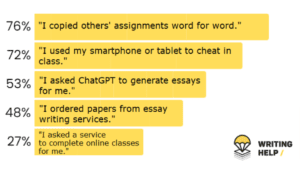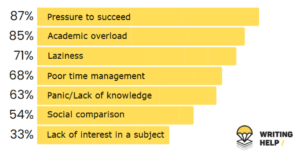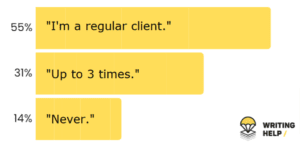This coming year in education marks several crossing paths of equity, race, and uncertainty.
The year 2024 marks the 70thh anniversary of the landmark U.S Supreme Court case of Brown v. Board of Education, which started the dismantling of segregation de jure. It will also be the one-year anniversary of a ruling that may prove to be just as momentous, the decision of the six-justice conservative majority on our current Supreme Court to end Affirmative Action in higher education admissions policy. Ongoing fights to save Black history and African American studies on all levels will surely continue through next year and beyond.
However, rarely do we ask ourselves about the system of race and education in other countries, though we should be, as American citizens of color increasingly are considering studying abroad this year. According to the U.S Department of State’s latest data from 2016, six out of the top 10 destination for all students are countries in Europe, a place I have lived and travelled through for many years.
There are many Black students and students of color who envision European countries as more progressive and open than in the States. Some of this is true, for example, in their social welfare policies such as universal healthcare, walkable cities, and more reliable public transportation.
However, there are still growing pains when it comes to diversity and inclusion. Many countries, such as Ireland, where I briefly lived and work for four months in 2022, have only experienced immigration in the last 20 years or so. In fact, I have had former colleagues at my university in Ireland who are from South Asia and Africa remember a time in the late 90s or early 2000s when they were referred to as the “Brown One” in local villages and towns.
Further, many countries in Europe do not have any legal concept of a “Hate Crime,” even as crimes against racial and ethnic minorities have risen. It has been less than 10 years since Irish NGOs and academics have brought awareness on this social ill.
As a postgraduate student in multicultural London, I had few conversations about race. There was awareness on gender diversity, which mainly impacted White women, but nothing about institutionalized racism.
When I left in March 2020, the UK had only 25 Black women academics who rose through the ranks and became full professors. However, after George Floyd’s death in 2020, which sparked a global Black Lives Matter movement, some institutions became “aware” of the glass ceiling; the number creeped up to 41 Black women as full professors.
American students of color are rarely going to see someone who looks like them in a senior faculty role. According to a report published by the UK University and College Union, graduate students of color felt excluded from informal and formal professional development opportunities and lacked mentorship because of the lack of diversity in faculty, which also means the lack of diversity in the type of research project undertaken.
However, continental Europe is still behind the UK. In a 2017 international conference on Black studies, participants explained how the existence of race as an organizing principle is denied and not yet established as it is in the U.S. Furthermore, this year, Black students in Ireland are petitioning their university for a Black studies course and to be taught by a Black academic.
Outside the classroom is another difficult transition. As a researcher in Ireland, I faced a significant amount of racial discrimination on-campus and off-campus. For instance, Ireland has a housing crisis that is unlike any other place I have lived. Landlords receive thousands of enquiries, and normally rent a place to a prospective tenant that have not even seen it in person. That is how competitive it is for students and faculty. For example, my former colleague, who is from Libya, pleaded in the local newspaper for housing before her inevitable eviction date. She discusses how international students and faculty lack support to find housing and are most vulnerable to homelessness.
The last place I went to see, a faculty member from a nearby university offered me a room to rent in a home shared by her and a female healthcare worker, but I would not be allowed to use the bathrooms in the house. She explained that her roommate felt uncomfortable sharing the bathroom in the hallway and she wasn’t comfortable with sharing her ensuite bathroom “to just anyone”. This is just one of my multiple experiences with housing discrimination.
On campus was worse because the faculty members who hired and brought me to Ireland, had little interest in interacting with me, as I was segregated from the research team. Nor did they support me when I faced housing discrimination; when I told my supervisors, one laughed and commented, “some people are so silly” and the other said, “did they tell you this to your face”?
Should Americans study abroad? Yes. However, we need more open discussions about the ugly sides of living in a country where most of the society does not understand why it is racist to bar a foreign person from sharing the same space. Americans may experience the treatment of being “foreign” but being Black and American means hypervisibility and instances of overt discrimination that only your grandparents may remember.
In Ireland, thousands of international students are living in hostels and hotels year-round because the universities recruited them, but do not prioritize them for on-campus housing or any support on transitioning to life in a new country. American and other international students are a minority on Irish campuses, but are also a large source of income for these universities because they can pay anywhere from 8 to 18 times more in annual tuition fees than Irish students. Therefore, the U.S Department of Education’s Office of Civil Rights (OCR) has a role to play in this, as any institution that accepts federal funding should abide by Title VI provisions which prohibit racial discrimination. Federal funding includes student aid that Americans use to pay tuition when studying abroad. OCR can withhold this.
OCR received my complaint regarding the discrimination I faced in Ireland and my former university’s noncompliance with Title VI, despite receiving U.S student aid. U.S Department of State’s Bureau for Human Rights, Democracy, and Labor are also aware of my complaint because they publish an annual report of human rights violations in every country. These two departments have the power to warn Americans about discrimination and housing insecurity in Ireland just like the French embassy issued a warning last year to its citizens that were considering studying in Ireland. Neither department has responded.
American taxpayers have the right to demand that our students and staff are treated with dignity, courtesy, and respect when on overseas campuses, since these institutions receive federal funding via student aid. This can start by emailing OCR at OCR@ed.gov, with the subject line “Apply Title VI Overseas”. Hopefully 2024 can be the year when education everywhere in the world comes to terms with systemic racism and discrimination on campuses or at least the financial impact of maintaining the status quo.
Bio: Dr. Sabine Franklin is a born and bred New Yorker researching how low-income countries respond to public health emergencies.














